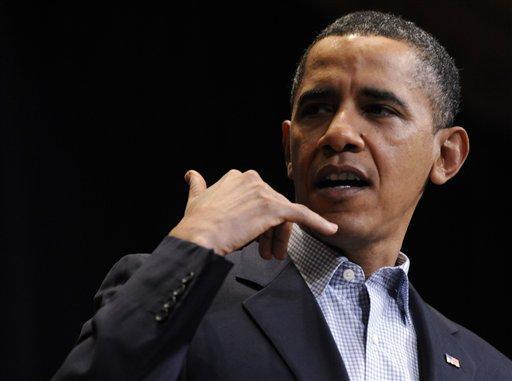There may be hope for the political discourse in our country after all.
First, President Barack Obama delivered a distinctly conversational State of the Union speech, addressing Republican legislators directly. Afterward, many pundits were skeptical that the president had struck a chord of bipartisanship given the highly entrenched camps over health care reform.
But this bipartisan theme continued when the president made a highly unusual move two days later: He faced his opposition directly by making a speech and fielding questions from Congressional Republicans on live television.
In what is being likened to question time in England — when the prime minister must defend his policies before Parliament — he went into the lion’s den. But the political blood sport, which the media would have certainly enjoyed, didn’t show itself. Instead the president’s remarks were again conversational, as he addressed both the successes and failures of Democratic and Republican relations.
When it was time for the Republicans to ask their questions, it was refreshing to hear them treat the president with respect. Even though most of the “questions” were loaded assertions — some unfairly phrased — the president took it in stride.
And no one interrupted him with accusations of lying.
It was also refreshing to hear what command Obama has of his issues. He seemed relaxed, and he drew many laughs from his crowd.
Whether this new theme is evidence of Democratic unease shouldn’t be the relevant point here. For whatever reason, the president has changed gears. He seems to be attempting to raise the level of political discourse to a point where the details of his reforms can be discussed point by point.
He would do well to continue his hands-on, in-the-open approach to the political process. Whether you agree with the Democrats’ plan to bring new life into the nation’s health care system, chances are you probably don’t have a clear understanding of what is exactly included in the bills. This is reflected in conflicting public opinion polls. Many of the Democrats’ proposals poll well individually, but when combined, do poorly.
Clearly health care reform has stalled because it hasn’t been clearly and effectively sold. Much of the confusion over what exactly is being proposed has been because of the lack of direct debate before the American public.
We need to make sure we don’t get bogged down in the shouting matches that take place between Democratic and Republican partisans. Instead, we need both sides at the table, so disingenuous assertions can’t go unchallenged. If the Democrats’ proposals for health care reform are the best thing for America, they shouldn’t be afraid to debate their merits.
Perhaps it’s fitting that Jon Stewart made his second appearance on “The O’Reilly Factor” last week. Like the president’s address to Congressional Republicans, it was refreshing to see two public opinion heavy weights from different sides of the aisle sit down and talk.
Their discussion was occasionally sarcastic, but it never got uncivil. It wasn’t a cage fight. It was a chance for candid discussion — a discussion which included sensitive issues like the ideology of O’Reilly and the Fox News Channel itself.
I watch “The O’Reilly Factor” as a form of sadistic entertainment, but O’Reilly’s willingness to put Stewart on the air separates it from the partisan liberal Keith Olbermann’s show. O’Reilly wasn’t afraid to have someone ask tough questions.
The president of the U.S. should be able to do the same thing. Obama should do himself — and the nation — a favor: Make an annual discussion with the opposition a permanent part of the State of the Union.
Doing so will greatly improve the political discourse in our country and our democracy.Mark Macmurdo is a 23-year-old history and economics senior from Baton Rouge. Follow him on Twitter @TDR_mmacmurdo.
—-Contact Mark Macmurdo at mmacmurdo@lsureveille.com
Murda, He Wrote: Obama should make ‘question time’ a fixture
February 8, 2010






